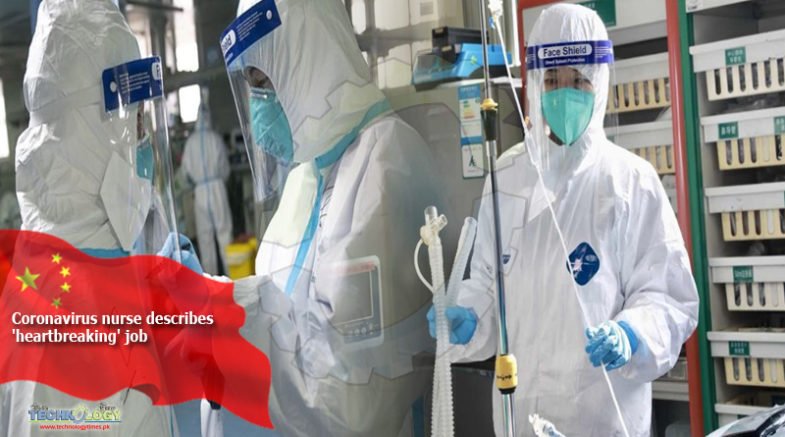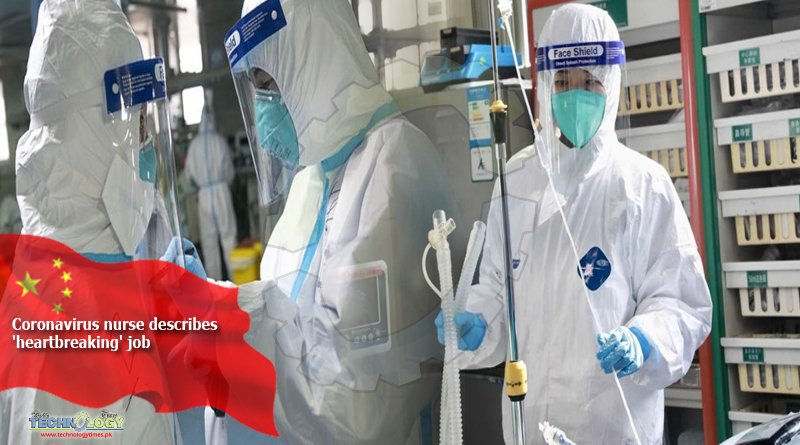More than 600 people have been killed by a new strain of coronavirus since its outbreak began in China at the end of last year.

But while infection numbers rise, information about conditions on the ground in China is limited.
Initially, news organisations in the country were able to report on the epidemic in detail.
In recent days, however, internet platforms have taken down several articles criticising the government’s efforts to curb the virus.
Officials have also sought to crack down on the warnings shared by a doctor when the coronavirus began to spread.
In a rare occurrence, media spoke with a health worker in Hubei, the province at the outbreak’s epicentre.
To protect her identity, she asked to be referred by her family name, Yao.
- Five need-to-know things about coronavirus
- A visual guide to the outbreak
- Diary of a life in locked-down Wuhan
Yao is based at a hospital in Hubei’s second-largest city, Xiangyang. She works in what she describes as a “fever clinic,” where she analyses blood samples taken to diagnose anyone suspected of having coronavirus.
Before the outbreak, Yao had planned to travel to Guangzhou to spend Chinese New Year with her family.
Her child and mother travelled ahead of her, but when the epidemic broke out, Yao decided to volunteer in Xiangyang instead.
“It’s true that we all live one life, but there was just this strong voice inside me saying ‘you must go,'” she told the Media.
At first she had to overcome her doubts about the decision.
“I told myself: be prepared and protect yourself well,” Yao said. “Even if there was no protective suit, I could always wear a raincoat. If there was no mask, I could ask friends all over China to send one to me. There is always a way.”
Yao says she found that the hospital is better supplied than she expected. The government has delivered resources and private companies have donated equipment to help.
There is still a shortage of protective masks and suits, however, and not every member of staff is properly protected.
“It’s a difficult job, it’s very sad and heart-breaking, and most of the time we just don’t have time to think about our own safety,” said Yao.
“We also have to treat the patients with tender care, because many people came to us with great fear, some of them were on the verge of a nervous breakdown”.
To deal with the high number of incoming patients, staff at the hospital work in 10-hour shifts. Yao said that during these shifts no-one can eat, drink, take a break, or use the toilets.
“At the end of the shift, when we take off the suits, we’ll find our clothes are completely wet with sweat,” said Yao. “Our forehead, nose, neck and face are left with deep marks by the tight masks and sometimes even cuts.
“Many of my colleagues just sleep on chairs after the shifts, because they’re too tired to walk,” she added.
But despite the hardship, Yao says none of the hospital’s medical staff have been infected.
She and her colleagues have also been boosted by warm messages from members of the public. Some people have even sent food and other daily necessities.
“I feel that even though they are quarantined at home, the virus brings our hearts together,” said Yao.
In all, she said China’s government’s response to the coronavirus outbreak has been “fairly quick,” and no other country could have given a better response.
“In the West, you talk more about freedom or human rights, but right now in China, we’re talking about the matter of life or death,” said Yao.
“We’re talking about whether you might see the sunrise tomorrow. So all people can do is to cooperate with the government and support the medical staff”.
